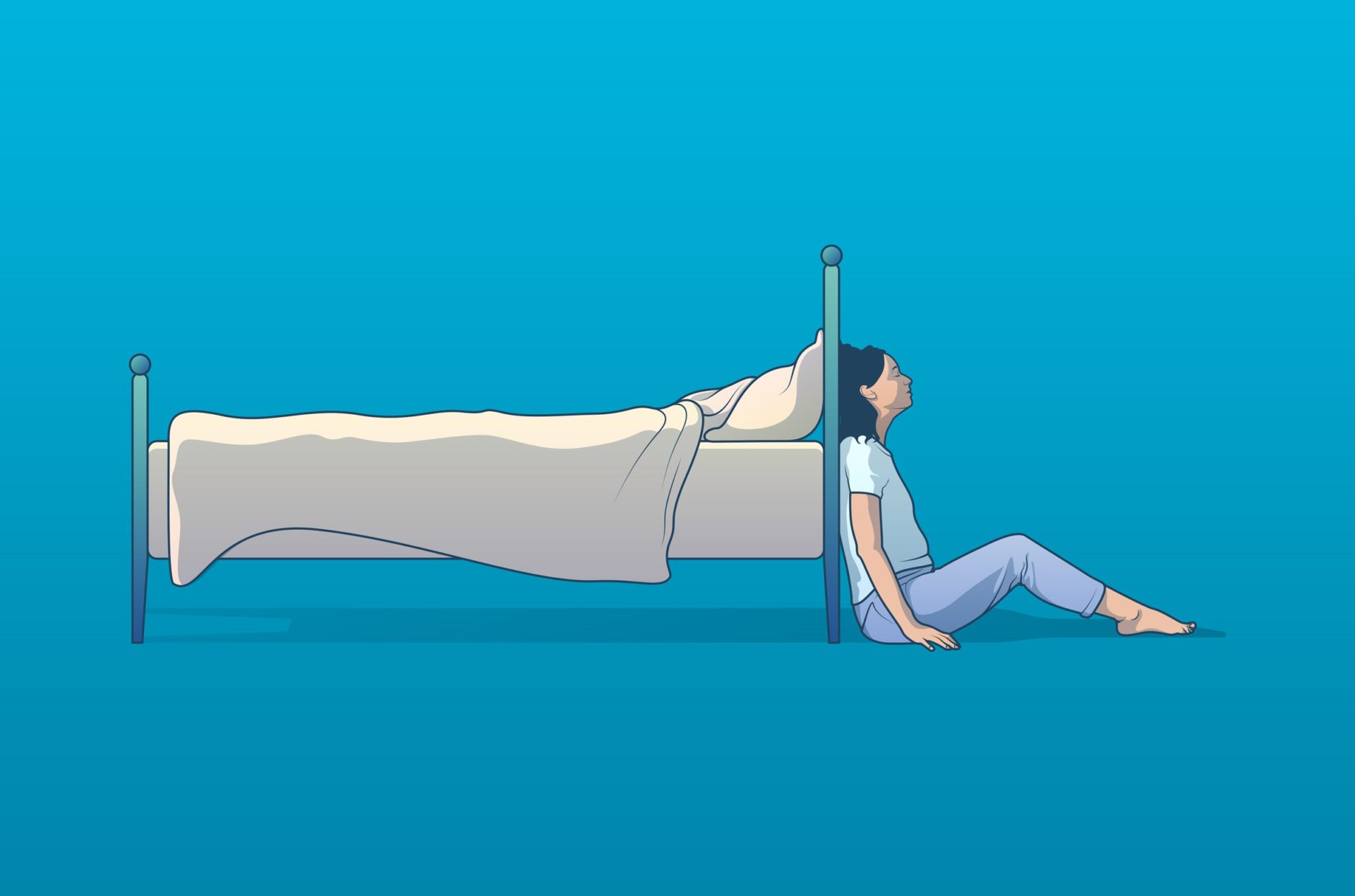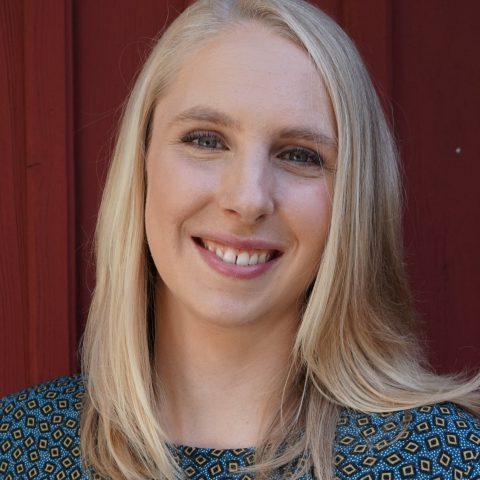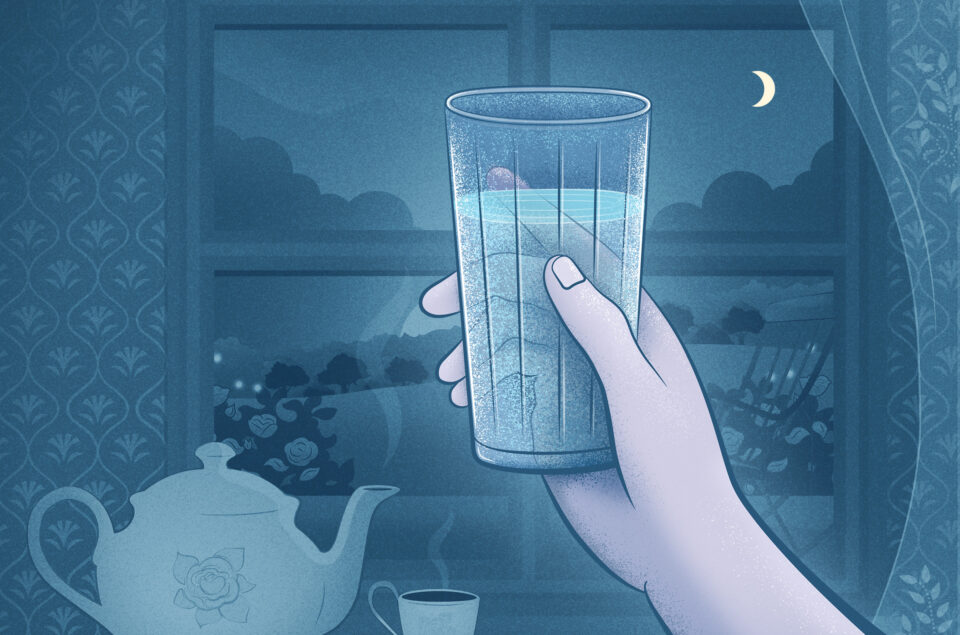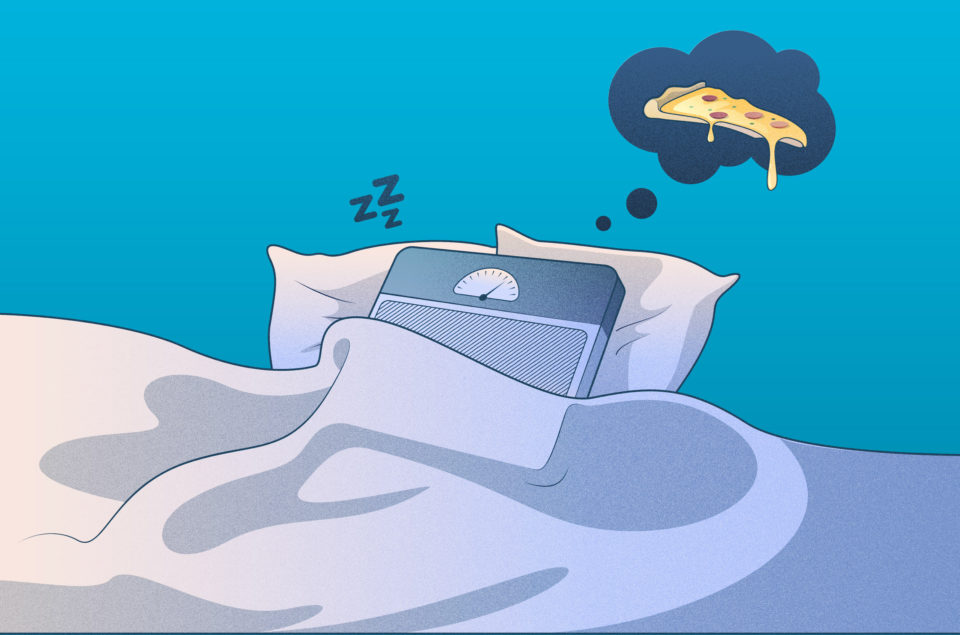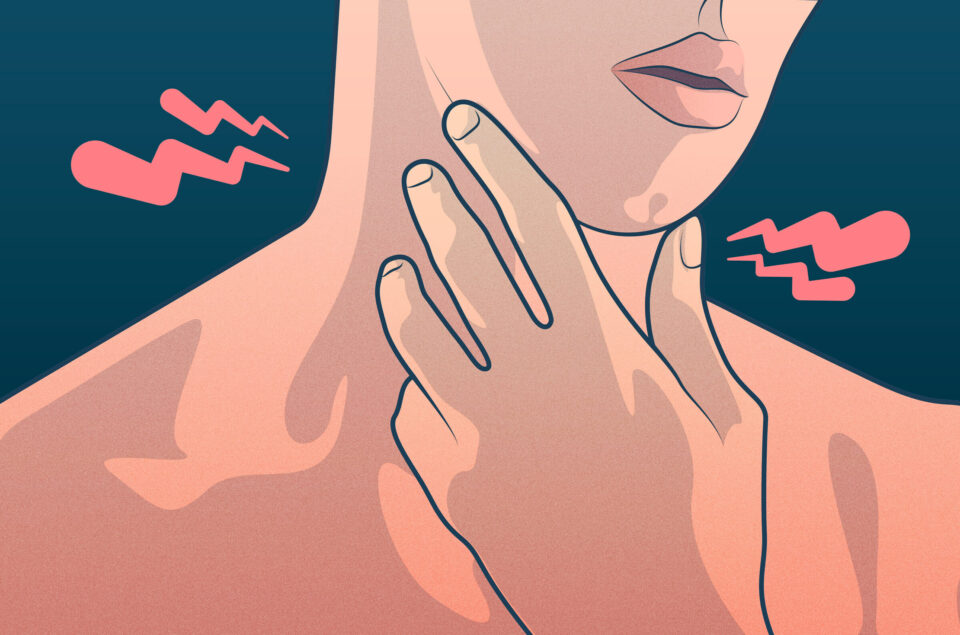Sleep efficiency is one of the many measures used to determine how well or how poorly we sleep. Taken into consideration with other factors (duration, latency, sleep quality), it can give us a better picture of our overall sleep health.
The definition of sleep efficiency is the percentage of time we spend asleep while in bed. Time spent in bed not trying to sleep—while reading, for example—doesn’t count. You can calculate your sleep efficiency by dividing the time you’re asleep by the total time in bed. So, if you sleep for six out of eight hours in bed, your sleep efficiency is 75%. What’s a good score? Anything 85% or higher is considered “normal.”
But, when it comes to putting a quantifiable number on slumber, it’s complicated. A high score doesn’t necessarily indicate a good night’s sleep and vice versa. You might have a high sleep efficiency calculation because you only slept for three hours. Or you could wake up feeling well rested after 10 hours in bed and still have a low efficiency score.
What impacts whether you’re an efficient sleeper?
Some people are just naturally better at falling asleep than others. Many things impact how well we fall asleep. Obvious factors that contribute to our ability to fall asleep are diet, exercise, stress, anxiety and lifestyle. Other factors are less apparent. For example, it is possible that the relationship with sleep you developed early in childhood could impact what kind of sleeper you are as an adult.
How can you improve your sleep efficiency? Here are the leading factors that contribute to a higher score:
- Pain and illness can have a negative impact on sleep. Pain can cause you to wake up more throughout the night. Illness can actually have two different outcomes on sleep. When we’re sick, it either tends to help increase sleep or decrease and disrupt sleep, for example, from coughing.
- Age. Sleep efficiency diminishes slightly with age. Interestingly, studies show that even though our sleep efficiency declines as we age, our perception of feeling well rested improves, particularly in women.
- Stress is a major factor in sleep efficiency. If you have a lot going on in your life and your brain is wound up, you can have more difficulty falling asleep. Waking in the middle of the night and ruminating about problems instead of going right back to sleep is a common issue. It is easy to stress about the lack of sleep while you’re lying in bed, but unfortunately, this only exacerbates the problem. However, with practice, we can train our brains to better handle stress during the night (see tips below.)
- Noises such as a partner snoring, a child crying and sounds from outside can all keep us awake.
- Environmental factors like a too-hot or too-cold room can hinder sleep.
- Socio-economic differences impact subjective measures of sleep efficiency. Studies have shown that people from lower socio-economic backgrounds are more likely to rate their sleep as worse than other groups.
- Loneliness. People who are lonely have lower sleep efficiency, according to this study from 2002. Loneliness and sleep is a very relevant topic in the pandemic. We are group animals, and loneliness is a vulnerability. Not interacting or communicating with others to process our feelings is detrimental to both our mental and sleep health. (See our report on Sleep and the Coronavirus).
- Relationships. One study suggests that for couples, there is an association between sleep efficiency and daily interpersonal relationships.
- Sleep debt can play into sleep efficiency. The greater your sleep debt, the faster you might be able to fall asleep, which might increase your sleep efficiency for that recovery night.
- Lifestyle. Lifestyle factors like a healthy diet and good sleep hygiene are important when it comes to improving sleep efficiency. Moving more during the day can help you fall asleep at night. On the other hand, exercising right before bed puts the body in active mode and might require a winding down period.
Train the brain for better sleep
What should you do if you find yourself lying in bed awake unable to fall back asleep? We need to learn to connect “bed” with “sleep.” This may mean breaking old thought patterns in which the brain has learned to equate bed with wakefulness.
If it starts to feel like you’re taking a really long time to fall asleep, or if your mind is racing with lots of worry, then the best thing to do is to get out of bed and do something else before trying again. Do something relaxing to calm your mind (that doesn’t involve a screen!):
- Meditate, read a book, take a bath, do sudoku. Have a notebook nearby to write down your thoughts, journal or put down your to-do list to get it off your mind.
- Sleep aids like those in our Sleep Aid Library offer soothing sounds, music, poetry, stories and guided meditation to help calm the mind.
- Practicing mindfulness during the day, processing emotions and reflecting on your life and problems in a healthy way can all contribute to better sleep efficiency at night.
You may not be able to control how much sleep you will get, but you can control how you respond to it.
